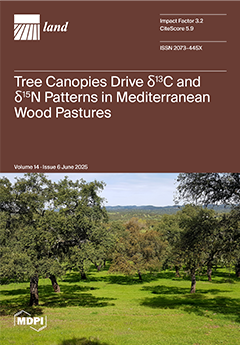
Climate change (CC) is a major threat to agriculture, the sector that supports the territorial economy in the Pays Haut Languedoc et Vignoble (PHLV) region (south France). In this region, farms have been facing the negative effects of CC for several decades. The implementation of agriculture adaptation policies requires a coherent and integrated tool that mobilizes approaches for territorial development, vulnerability assessments, and feasibility. The purpose of this research is to provide a multi-criteria assessment of farm vulnerability to CC in the PHLV region. An index of farm vulnerability was developed based on the classic model of vulnerability, which is the product of exposure and sensitivity divided by adaptive capacity. This assessment was conducted at the farm level, by combining biophysical variables (such as soil type and irrigation) and socioeconomic variables (such as agricultural experience and crop insurance), selected based on a literature review and interviews with local stakeholders and local experts. To solve the weighting problem, we differentiated between a “calculated vulnerability”, without any specific weighting of the vulnerability variables, and a “declared vulnerability” that integrates the scores assigned to the importance of each variable for each farmer surveyed, based on their awareness. Afterward, a discriminant analysis was used to identify the factors that determine the vulnerability classes. Our results show that (i) the majority of the surveyed farms have a relatively high vulnerability index, but wine farms and cereal farms are the most vulnerable; (ii) for all farms the “declared vulnerability” is lower than the “calculated vulnerability”, showing that farmers underestimate their vulnerability; (iii) there is an interesting link between the low level of vulnerability and the adaptation efforts already made over the past ten years by certain farms that have changed or introduced crops and improved their agricultural practices.
